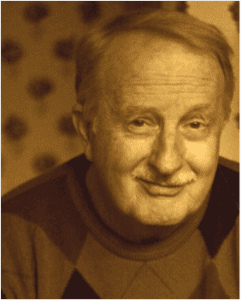I have become an Oxfordian only recently, having pursued the Shakespeare authorship question for two years. With a liberal arts undergraduate degree and two advanced degrees, in science and business, I have a perspective that is uncommon to many I have worked with. Though involved in nuclear energy for 50 years, I have also pursued research and publishing about topics that seemed to be either based on fraud or flawed science. For many years, I thought (hoped?) that science was immune from contamination by personal ego or by a desire to change the truth, naively thinking that all science arose from the scientific method, rigorously applied.

Thirty years ago, I realized that the fear of low-dose, ionizing radiation was not based on valid science, and my pursuit of truth wherever error showed itself as a foundation began. I have also taken on the flawed science supporting other popular topics, showing their foundations have footers of sand. I saw that science was being “created” by vested interests declaring eminent domain on truth, based on superior knowledge, experience, or authority, and that those in opposition were discarded as ignorant, ill-informed or dishonest.
Two years ago, at a university where my daughter is an assistant professor, I purchased a book by Charlton Ogburn, Jr. on the authorship question. I read it and was hooked. Ogburn showed there’s no evidence of Shakspere’s authorship record, credentials, and literary colleagues, nor any tributes by colleagues at his death. Needing to validate what Ogburn said, I embarked upon studying both sides of the question. I read Shakespeare Beyond Doubt, Shakespeare’s Unorthodox Biography, Shakespeare Beyond Doubt?, on-line postings by the SOF, and a substantial portion of David L. Roper’s materials, including Proving Shakespeare. The facts from these readings became clear, and the Shakespeare Birthplace Trust league’s inability to either address or rebut them was compelling. But to that point, it remained circumstantial evidence that was compelling, and what was missing was the “smoking gun” that William Shakespeare was a pseudonym of Edward de Vere. I believed that, but, though the evidence was huge, it was not thoroughly dispositive.
Then, I found Roper’s work, and his detailed examination of the cryptographic record was, to me, the scientific evidence I needed. The encryptions are solid facts, and the probability work he has done to establish their validity is above reproach. I realize academic opposition has off-handedly dismissed his work as the same as the false Baconian cryptology, but Roper’s work is sound as best I can determine. I became an Oxfordian in November 2015.
Further, I think Oxfordians must open a new front, based on the science of cryptography. This takes the debate out of the literary realm exclusively, and cryptographic scientific proof makes rebuttal difficult. I would suggest that a cryptologist with impeccable credentials and academic standing author a book on what Roper and others have found, concluding with certainty that colleagues of de Vere knew him to be William Shakespeare, without doubt.
— Charles W. Pennington
Available on Amazon: Shakespeare Beyond Doubt? and Proving Shakespeare.
“How I Became an Oxfordian” is edited by Bob Meyers. You may submit your essay on this topic (500 words or less in an editable format such as MS Word), along with a digital photo of yourself, to: communications@shakespeareoxfordfellowship.org. Also include a sentence about yourself (e.g., “John J. Smith is a businessman in San Francisco.”).
You may join the SOF or renew your membership at our membership page.


